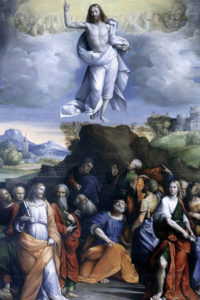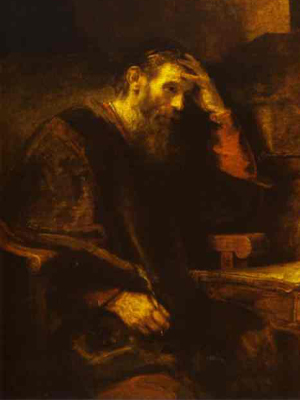 Scripture:
Scripture:
Reflection:
How often do we listen to and trust that voice that speaks to our very core? We recognize the voice as true. Somehow, we know it to be the voice of the Spirit – maybe even looking around to see if anyone else heard it. We want to believe but we don’t know what it might mean.
I’ve heard many stories from friends about “voices” they hear and know to be true. One friend told me about the time he was delayed in getting ready to go to Mass. Giving up and settling into a quiet evening, he “heard” that voice telling him to trust and get himself to Mass. There, sitting next to him in the pew turned out to be the love of his life.
Do I understand this? No. Do I trust it? Yes, or at least I try. Has there been a time in your life when you heard deep within your heart that voice and knew it to be truly of God?
In today’s first reading, St. Paul tells the community he must move on from Ephesus: “Compelled by the Spirit, I am going to Jerusalem. What will happen to me there, I do not know.” Paul trusts that God is working through him. He just needs to keep listening, trusting and responding to the Spirit.
This is what “discernment” means in our life of faith: listening. Of course, there are many voices out there vying for our attention. And we have all certainly listened to the wrong voice on occasion. But I imagine all of us can recall a moment of extreme clarity. We just knew something to be true, like my friend: “Trust me, go to Mass.” Or St. Paul knowing he must go to Jerusalem even though he did not know what awaited him there. Even Jesus, trusting in his relationship with his Father, knew he had to go to Jerusalem.
When I was a young Jesuit, the provincial said to me, “We’d like to send you away, like to the missions.” “How far away?” I asked. “Very far, like the Philippines,” he replied. And I said without a moment of reservation, “Yes.” I knew it to be right, and it was. Sometimes the Spirit speaks with great clarity and we need to go with it.
Robert Hotz is a consultant with American City Bureau, Inc. and was the Director of The Passion of Christ: The Love That Compels Campaign for Holy Cross Province.

 Memorial Day
Memorial Day
 Scripture:
Scripture: Scripture:
Scripture:
 Scripture:
Scripture: Scripture:
Scripture: